Bass Players to Know: Bob Daisley
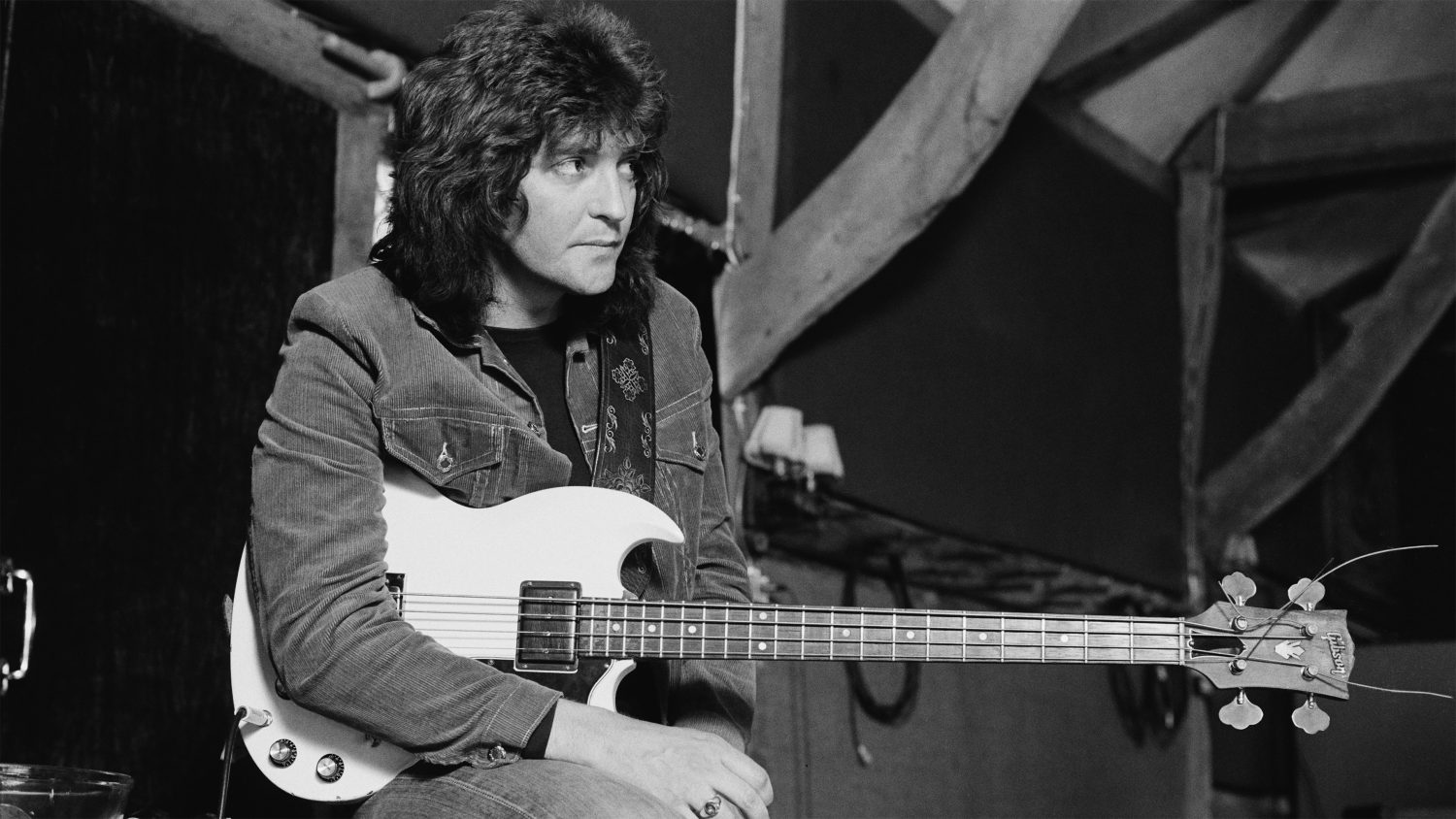
When it comes to picking out a bass player to know, I always try to look beyond the scope of my own musical knowledge. Frankly, it’s the best way to learn and discover new things and my hope is that you, the reader, look at this column series as a way to do the same. By enlisting the help of friends’ and readers’ suggestions, I get hip to a completely new world of music, instrumentalists, and cultural phenomena; this learning process is as humbling as it is rewarding. Recently, I turned to No Treble Managing Editor Kevin Johnson — if anyone could infuse a little more rock into my world, he could. Thanks to his suggestions, I spent an afternoon listening to Ozzy Osbourne records and learning the well-crafted, diverse, and totally groovy bass lines of Bob Daisley. Originally seduced by his playing on the classic “Crazy Train,” I soon discovered records by Gary Moore, Rainbow, and Uriah Heep. I knew that I couldn’t keep the excitement to myself, so without further ado, I bring you our latest bass player to know!
So Who Is Bob Daisley?
A native of Sydney, Australia, Bob Daisley began his musical journey as a guitarist-turned-bassist at the age of fourteen. Inspired by soul music and the British Invasion, his first studio project was Wide Open with the Australian based band Kahvas Jute. Quickly realizing that better musical opportunities lie elsewhere, he moved to London in 1970. Within a few years, he found himself touring and recording with bands such as Chicken Shack, Mungo Jerry, and Widowmaker. By the late 1970’s, he joined Rainbow alongside Ronnie James Dio and Ritchie Blackmore for several tours and the record Long Live Rock’n’Roll. In 1979, Daisley had a chance meeting with Ozzy Osbourne at a bar in London and shortly thereafter, began recording Osbourne’s debut solo record Blizzard of Ozz.
The 1980’s proved to be a busy decade for Daisley, as he bounced between a handful of successful projects. In addition to working with Ozzy Osbourne as a solo artist, he recorded with Black Sabbath and Uriah Heep. He had an “on again off again” touring relationship with these artists despite playing on many of the records. Daisley also established what would become a long-time association with Gary Moore, playing on several records and tours between the 1980s and mid 2000s. After returning to Australia in the early 2000s, he continued to write, record, and tour with various artists. He has recently published an autobiography, For Facts Sake, has a signature “Black Beauty” bass by Utopia Custom Shop, and remains an active member of the musical community.
Let’s Talk Style
As with many of our Bass Players to Know, Daisley has the ability to jump from one musical scenario to another due to his versatility as a player. He brings his signature tone and attitude to different projects but understands how to contribute to the vision established by the artist (this is probably why he continually got called back for sessions and tours). Fretless bass? Sure. Pick? Absolutely. Aggressive and busy in one song and mellow in the next? No problem.
Rooted mostly in rock and blues, he holds down the groove with his mastery of the quarter note—take a listen to how he plays with an assertive attack and acute note duration to clearly define the feel. Both a pick and finger style player, he excels at playing quick sixteenth notes, triplets, gallops, and cross string jumps; his integration of these varied techniques influenced countless rock and metal records of the 1980s.
Daisley’s thorough knowledge of theory is evident in both the riffs he creates and the sparse, fretless melodic lines of Gary Moore records. Often implementing scale-based fills or lines, he takes a rather creative approach by moving in different directions (such as playing a few notes ascending, then descending, then ascending again). Rather than shying away from chromatic motion, he embraces it to add tension and a touch of dissonance, particularly in the way he zig-zags up and down the scale. Like all great bass players, he cleverly outlines the harmony of a chord progression, sometimes with the classic chromatic motion moving from a one to four chord or by taking a diatonic approach and adhering to the major or minor scale.
Where Can I Hear Him?
“Crazy Train” (Ozzy Osbourne: Blizzard of Ozz)
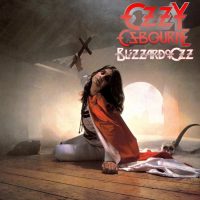 It’s no surprise that this song is a rock anthem with the grit and attitude of overdriven guitars, the powerful rhythm section, and the eerie, demonic vocals. A tutorial in bass playing 101, Daisley manages to fit just about every style of rock bass line into this song: punctuated hits, authoritative quarter notes, pedaling, galloping, octave jumps, and scale-based riffs. He clearly defines the harmony of the song, going from the minor-based intro, choruses, and solo to the major tonality of the verse. Every bass player should learn how to play this song.
It’s no surprise that this song is a rock anthem with the grit and attitude of overdriven guitars, the powerful rhythm section, and the eerie, demonic vocals. A tutorial in bass playing 101, Daisley manages to fit just about every style of rock bass line into this song: punctuated hits, authoritative quarter notes, pedaling, galloping, octave jumps, and scale-based riffs. He clearly defines the harmony of the song, going from the minor-based intro, choruses, and solo to the major tonality of the verse. Every bass player should learn how to play this song.
Listen: iTunes | Amazon MP3
“Sensitive to Light” (Rainbow: Long Live Rock’n’Roll)
 There’s something undeniably enjoyable about unison rock riffs. Daisley executes the high-energy, blues-scale inspired lines with noticeable ease and brilliant articulation. He pedals the root through the verse and chorus changes with the same amount of gusto and adrenaline, adding octave jumps to break up the monotony. Another crash course in rock bass playing, it’s difficult not to play air bass while listening to this song.
There’s something undeniably enjoyable about unison rock riffs. Daisley executes the high-energy, blues-scale inspired lines with noticeable ease and brilliant articulation. He pedals the root through the verse and chorus changes with the same amount of gusto and adrenaline, adding octave jumps to break up the monotony. Another crash course in rock bass playing, it’s difficult not to play air bass while listening to this song.
Listen: iTunes | Amazon MP3
“Empty Rooms” (Gary Moore: Live at Isstadion Stockholm)
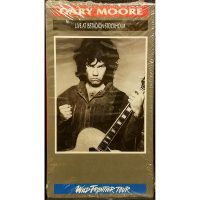 After the lengthy guitar intro, the band finally kicks in to a sparse, yet perfectly appropriate 80s ballad groove. Daisley plays with patience, refinement, and restraint to support Moore’s vocals.
After the lengthy guitar intro, the band finally kicks in to a sparse, yet perfectly appropriate 80s ballad groove. Daisley plays with patience, refinement, and restraint to support Moore’s vocals.
His melodic fretless bass solo puts him in the spotlight, showing a reserved and incredibly musical player. Using long slides, vibrato, and harmonics, he takes his time and performs with intent.
Listen:
This song was only released on VHS.
How about you? What’s your favorite tune or album with Bob Daisley? Please share with us in the comments.
Ryan Madora is a professional bass player, author, and educator living in Nashville, TN. In addition to touring and session work, she teaches private lessons and masterclasses to students of all levels. Visit her website to learn more!


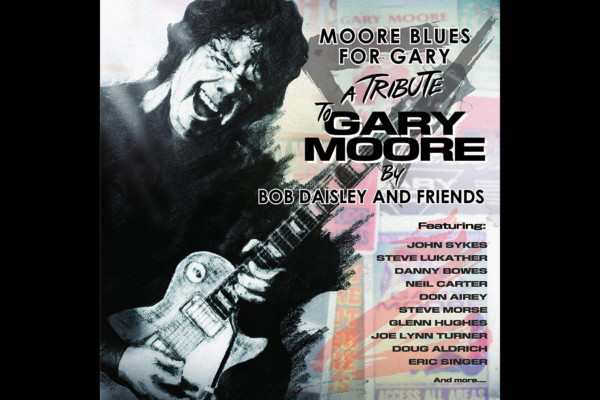
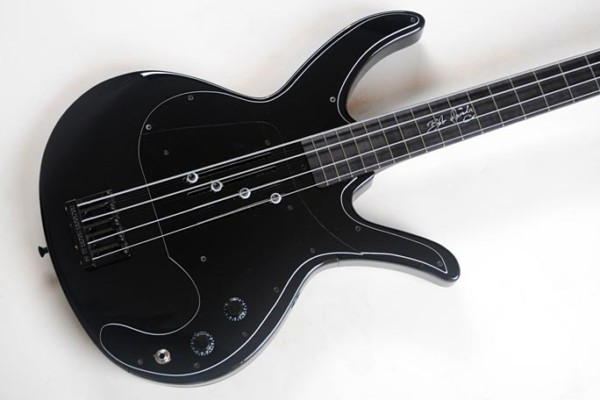
Don’t forget the short lufe of the band Living Loud with Jimmy Barnes and Steve Morse.